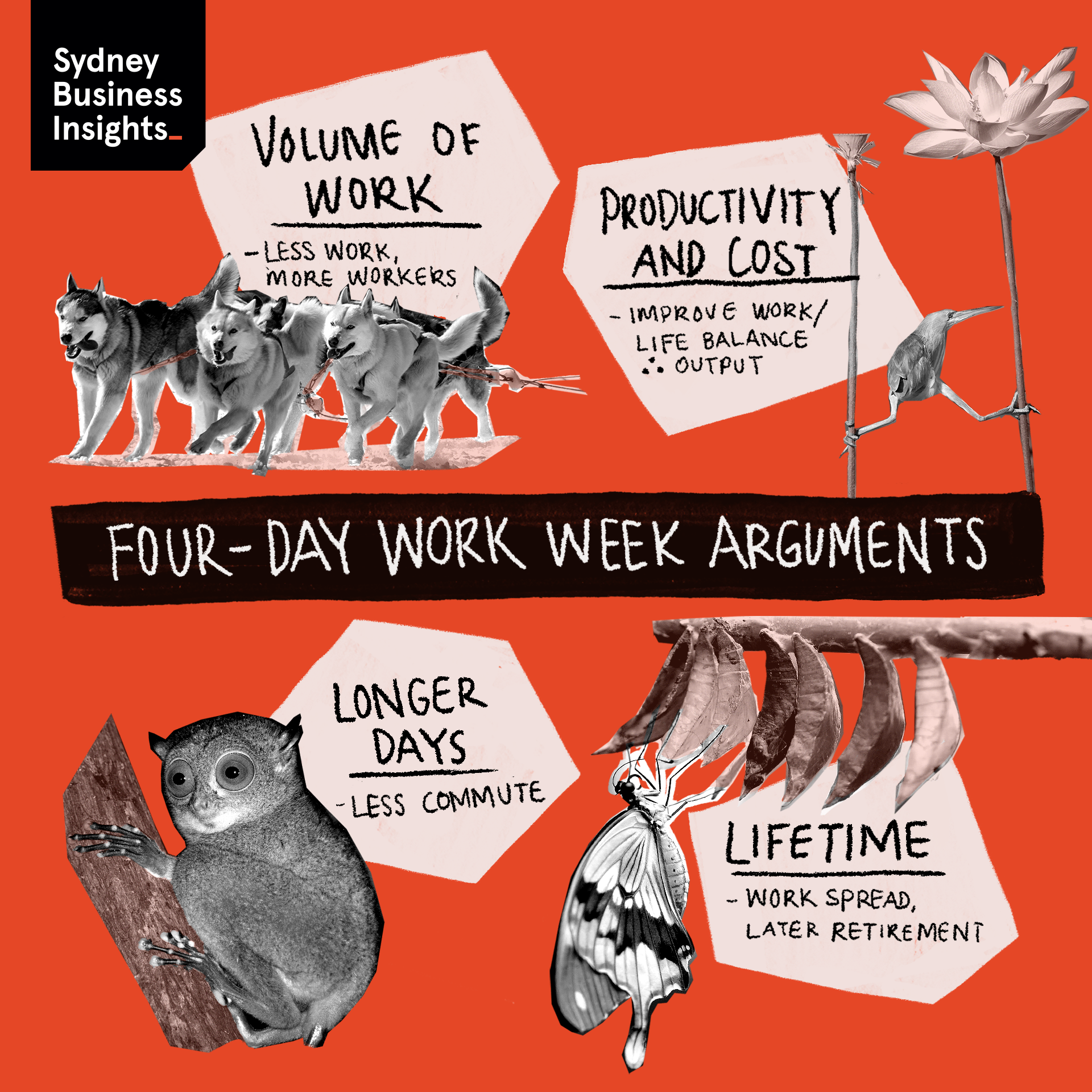Sydney Business Insights

The four-day work week: fit for a crisis and also better times
Even before COVID-19 forced drastic changes to people’s working hours, a handful of organisations had been experimenting with a four-day work week.
Microsoft Japan saw a 40% boost to productivity during a fixed term experiment with a shorter working week and Perpetual Guardian, a New Zealand finance company, found worker productivity improved when it cut working hours (but not wages!) by 20%.
Now COVID-19 vanquisher, New Zealand PM Jacinda Ardern, says the extra leisure day could boost domestic tourism and put more cash into the country.
A shorter working week can be achieved with either fewer working hours (30 down from 40) or ten-hour workdays leaving space for a 3-day weekend.
For the shorter shift to gain momentum many organisations and governments would need to be convinced by at least one of the four main arguments for the 4-day week.

1. Sharing the work
During times of economic crisis when jobs are being shed (pandemics, depressions) a shorter working week can sustain more people in the labour force. Individual and corporate capabilities are maintained. Less individual poverty and organisations would not have the cost of rehiring during better times.
2. Productivity and cost
Studies show shorter working weeks improve productivity (people are more creative, less stressed, happier on the job). Shorter working weeks also reduce company costs and with fewer commutes, less carbon emissions.
3. Spreading the working life out over our (lengthening) life span
For those in physically demanding jobs a 4-day working week would be less stressful on the body and also allow all workers at all ages to enjoy a better work/life balance.
4. Less days, longer days
Squeezing more hours into fewer working days. Less commuting days could help the environment but it’s possible longer workdays would be more stressful and less productive.
Learn more about the four-day work week
This is part of a series of insights related to Coronavirus (COVID-19) and its impact on business.
Image: Mike Kononov
Sydney Business Insights is a University of Sydney Business School initiative aiming to provide the business community and public, including our students, alumni and partners with a deeper understanding of major issues and trends around the future of business.
Share
We believe in open and honest access to knowledge. We use a Creative Commons Attribution NoDerivatives licence for our articles and podcasts, so you can republish them for free, online or in print.





